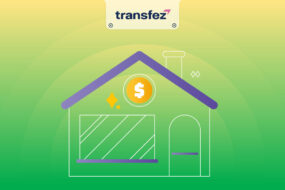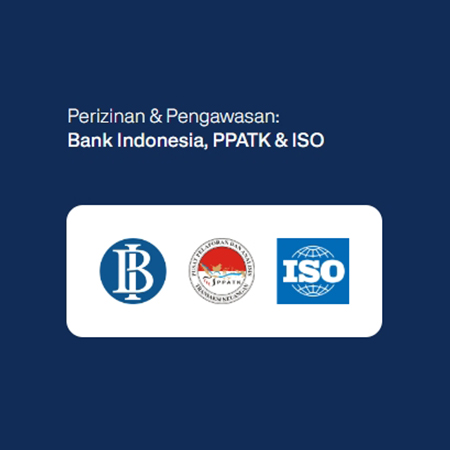Income tax in Japan is an obligation that every foreign resident and migrant worker living or working in the country must understand. With a complex tax system, understanding income tax rules is crucial. The goal is to avoid misreporting and to take advantage of possible tax deductions.
This article will explain everything about income tax in Japan for 2025 in a clear and easy-to-understand way, especially for foreign residents and migrant workers. Let’s dive in until the end!
Also read: Here Are 10 Affordable Yet Unique and Memorable Japanese Souvenirs
Residency Status and Its Impact on Taxes
 In Japan, your residency status determines which types of income are taxable. Here are the three main categories:
In Japan, your residency status determines which types of income are taxable. Here are the three main categories:
- Permanent Resident
You are considered a permanent resident if you have a registered domicile or have lived in Japan for more than one year. Permanent residents are taxed on all income, both domestic and foreign. For example, if you’re a migrant worker who has lived in Japan for two years and earn a salary in Japan and receive dividends from your home country, both are taxable.
- Non-Permanent Resident
This category applies to foreigners who are not Japanese nationals and have lived in Japan for less than five years within the last ten years. Tax is applied to income earned in Japan and any foreign income that is paid or sent to Japan. For example, if you receive a salary from a Japanese company and interest from a foreign bank that is transferred to your Japanese account, both are taxable.
- Non-Resident
Non-residents are individuals who live outside Japan or have an overseas address. They are only taxed on income sourced in Japan, such as salaries from jobs in Japan. Foreign income is not subject to Japanese tax. Understanding your status is crucial as it determines your tax obligations and the documents you need to prepare. You can check your residency status at your local tax office or by consulting a tax expert.
Also read: House Prices in Japan: 2025 Breakdown by Prefecture and Akiya Opportunities
2025 Income Tax Rates
 According to the latest data from Japan’s National Tax Agency, the income tax rate for 2025 follows a progressive system. Here are the details:
According to the latest data from Japan’s National Tax Agency, the income tax rate for 2025 follows a progressive system. Here are the details:
- Income up to 1.95 million Yen: 5%
- 1.95 million – 3.3 million Yen: 10%
- 3.3 million – 6.95 million Yen: 20%
- 6.95 million – 9 million Yen: 23%
- 9 million – 18 million Yen: 33%
- 18 million – 40 million Yen: 40%
- Over 40 million Yen: 45%
In addition to national tax, you must also pay a residence tax equal to 10% of your national tax, administered by the local government. For example, if your national tax is 100,000 Yen, the residence tax would be 10,000 Yen, making your total tax 110,000 Yen.
Transfez Makes It Easy to Send Money to 70+ Countries Worldwide
Income Tax Filing Process
Taxpayers in Japan must file their income tax return at their local Tax Office between February 16 and March 15 each year for income earned the previous year. The process involves:
- Gathering Documents
Collect documents like salary slips (gensenchoshuhyo), tax deduction certificates, and other supporting documents such as proof of dependents or deductible expenses.
- Filling Out the Tax Form
The tax form (kakutei shinkoku) is available at tax offices or online via the National Tax Agency’s e-Tax website. Fill it out carefully, including all sources of income and eligible deductions.
- Tax Payment and Refund
The tax office will review your report, calculate your tax payable, and determine if you’re eligible for a refund. Refunds are usually issued when too much tax has been withheld by your employer. For migrant workers under programs like Specified Skilled Worker, make sure you have official work documents such as a contract and work visa to ease the tax filing process.
Also read: Income Tax in Japan: A Complete Guide for Foreign Residents and Migrant Workers (2025)
Foreign Tax Credit to Avoid Double Taxation
A common concern for foreigners is double taxation—when income is taxed in both Japan and the home country. Fortunately, Japan has a foreign tax credit system to address this issue, as explained by tsunagulocal.com. If you pay income tax in your home country, you can apply for a tax credit in Japan to reduce your payable tax. To qualify, you must attach proof of payment, such as tax slips or certificates. Japan also has tax treaties with many countries, including Indonesia, to prevent double taxation. Be sure to check whether your country has such a treaty through the National Tax Agency’s website or a tax consultant. If no tax treaty exists, double taxation may still apply, and consulting a tax expert is highly recommended to minimize your tax burden.
Also read: What is G to G Japan Program and How Can You Join?
Tax Deductions for Foreigners
Foreign residents are entitled to certain tax deductions, such as:
- Dependent Deduction: If you have eligible dependents (e.g., a spouse or children living overseas), you may claim a tax deduction.
- Living Expense Deductions: Expenses like health insurance, pension premiums, and certain donations can reduce your taxable income.
- Special Exemptions for Foreign Workers: Some migrant workers with special skills may qualify for temporary tax exemptions based on bilateral agreements.
To claim deductions, make sure to keep all proof of expenses, such as receipts or insurance contracts, and include them in your tax return.
Read other Transfez articles about income tax
Income Tax in Australia: Tax Saving Tips for Locals & Migrant Workers
7 Common Mistakes to Avoid When Reporting Income Tax in Indonesia
How to Report Germany Income Tax in 2025: A Step-by-Step Guide
How to Calculate Income Tax in Malaysia for 2025
Practical Tips for Migrant Workers

- Understand Your Visa Status
Your visa type, such as a Specified Skilled Worker visa or other work visa, affects your tax obligations. Make sure all your visa documents are complete to avoid tax issues.
- Keep Financial Records
Track all your income and expenses to simplify your tax filing. Use financial apps or consult an accountant if needed.
- Use Online Tax Services
Use the e-Tax system to file your taxes online, which is faster and more efficient. The site also offers guides in English.
- Consult a Tax Expert
If you struggle to understand tax rules, a licensed tax attorney can help you file your return and maximize your deductions.
Download the Transfez App
The Transfez app helps you transfer money abroad quickly, affordably, and efficiently. Transfez Business also supports international transactions for your business. Whether sending money to family for studies, work, or travel abroad, Transfez has you covered. Available on Android and iOS. Download now!









